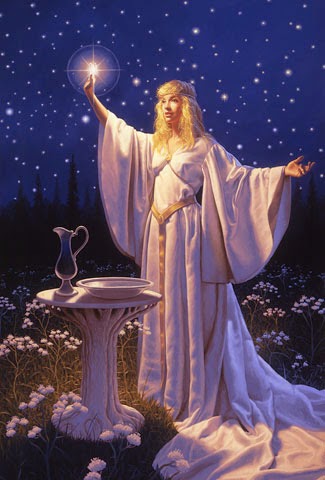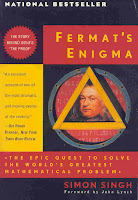Has Stephen Hawking killed God?
Stephen Hawking argues that God is not needed for creation in his new book, “The Grand Design” (co-authored with Lleonard Mlodinow). He writes, “Because there is a law such as gravity, the universe can and will create itself from nothing. Spontaneous creation is the reason there is something rather than nothing, why the universe exists, why we exist. It is not necessary to invoke God to light the blue touch paper and set the universe going.” Has Hawking killed God? No, I certainly do not think so.
Hawking explains that “because there is a law such as gravity, the universe can and will create itself from nothing,” but he does not explain why there is gravity in the first place. He argues that “spontaneous creation is the reason there is something rather than nothing” but he does not give a reason why spontaneous creation should necessarily happen. His axiomatic acceptance of the law of gravity and spontaneous creation seems to me as dogmatic as a theist’s acceptance of the idea of a Creator.
He further says that “spontaneous creation is the reason why the universe exists, why we exist.” Is he asserting that spontaneous creation is also the cause of human life? If he wasn’t, he was at least ambiguous in his statement; and if he was, he has not given any proof. Besides, human life cannot be considered as a mere juxtaposition of matter.
Hawking believes that the 1992 discovery of a planet orbiting another star other than the Sun “makes the coincidences of our planetary conditions – the Single Sun, the lucky combination of Earth-Sun distance and solar mass, far less remarkable and far less compelling evidence that the Earth was carefully designed just to please us human beings.”
He refers to the anthropic principle, a cosmological argument that many find compatible with the existence of a Creator. Simon Singh, in his book Big Bang, made an interesting discussion on this subject. “Anthropic principle, ” writes Singh, “states that since humans are known to exist, the laws of physics must be such that life can exist.” Singh then cites fellow physicist Martin Reese, who, in his book Just Six Numbers, demonstrated how our universe ultimately depends on six numbers- six parameters which are so sensitive that even a very slight change in their value would not allow life to exist. Singh comments that these six numbers seem to have been so carefully set in order support the conditions for life. He then poses the question: “So do we ignore this and just count ourselves extremely lucky or do we look for special meaning in our extraordinarily good fortune?” Between luck and meaning, Hawking seems to think that luck is the better option.
Hawking suggests that life in the universe is a mere product of chance, a result of having billions upon billions of possible universes such that at least one of them should exist with the conditions necessary for supporting life. Hawking, who must be so accustomed to looking for proofs and explanations for natural phenomena, all of a sudden abandons proof and accepts chance as his tool of choice for backing up his argument. But can chance, even a great chance, necessarily lead to an effect?
For an analogy, consider an unproven mathematical conjecture. This conjecture could be disproved by providing just one counter-example, a set of values of variables that render it incorrect. Let us assume that the pool from which the counter-example could be taken from is the set of all positive integers. This means that there are an infinite number of possible counter-examples to try out. With a pool so large, does it automatically imply that a counter-example could surely be found? Not at all. If the conjecture turns out to be correct, one may try as many times as he wants, but he will never be able to find a single counter-example. So chance, even an infinite chance, could not necessarily lead to an effect.
A conclusion that could now be brewing is that, surely, science and religion are contradictory; that it is impossible to be both a man of science and religion. But this should not be the case if one knows the proper realm of each field. We should note that the first person to give a reasonably confident and detailed description of the Big Bang is a Catholic priest who is a mathematical physicist at the same time - Georges Lemaître. Unlike Hawking, Lemaître did not have any problem living with both science and theology, since he knows which discipline is properly suited to the given circumstance: science with respect to the material world and theology with respect to the spiritual world.
So has Stephen Hawking killed God? There had been many God-killers in history. Most of them are now dead; those that still live will surely die. But the notion of God as a Supreme Creator and Cause will live on, not just among uneducated people who cannot explain the causes of natural phenomena, but even (and more so) among people who are at the very heart of studying these phenomena.
*****
Related Posts :
*****
Like Asymptotes on Facebook : http://www.facebook.com/Asymptotes
Follow Asymptotes on Blogger: Join Asymptotes Blogger site
Follow Asymptotes on Twitter: @_asymptotes_





sir how about cosmological constant does it really exist
ReplyDeleteEinstein introduced the idea of the cosmological constant because he could not believe that the universe could actually be expanding. He twice rejected the makings of the Big Bang model of the universe which implied an expanding universe even though they were largely based on his General Theory of Relativity. The first model was proposed by Friedman, the second by Lemaitre.
DeleteHowever, Einstein was humble enough to admit defeat when Hubble presented his findings on redshifts which support the model of an expanding universe.
Later on, Einstein would say this about his cosmological constant : “I am unable to believe that such an ugly thing should be realized in nature.”